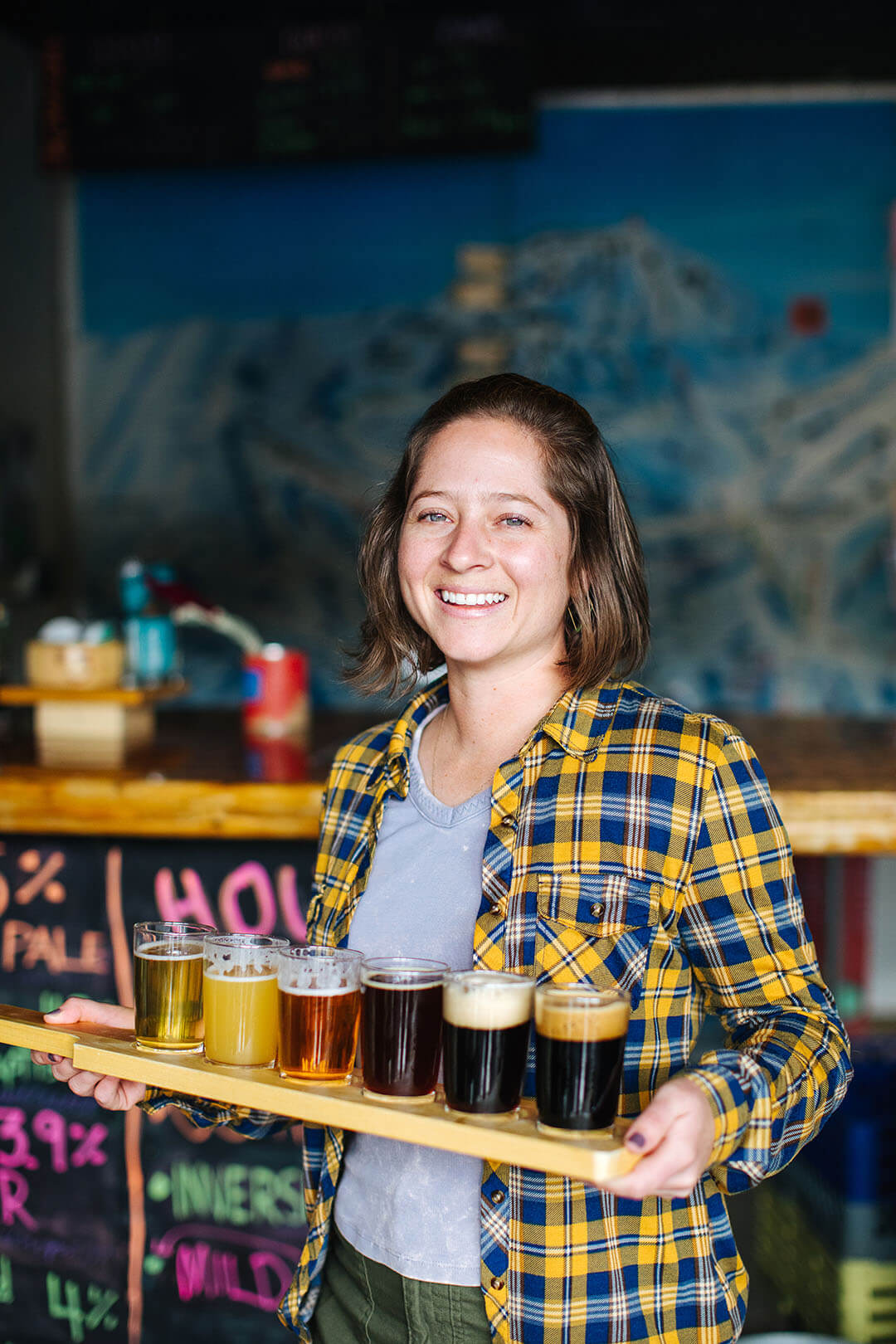Why I became a certified cicerone.
I’m the kind of person who wakes up before dawn for a long day of sticking my nose into small, plastic cups in a warehouse full of Nevada homebrewers. In other words, I’m passionate about beer.
My journey began with the bright bouquet of my hometown’s Lagunitas IPA. I went nuts for hops, and within a few years I found myself attempting to home brew various shoddy versions of hoppy ales to satiate my hankering. Then, one day, I realized I was missing out on styles to which my palate wasn’t attuned. I affiliated lagers with drinking games and thought dark beer probably tasted like motor oil. I was barely skimming the surface of the beer world.
“Learn a little bit about the amazing variety and complexity of flavor that traditional beer brings to the table,” Garrett Oliver says in his book, The Brewmaster’s Table, “and in return, I promise you a better life.”
I decided I wanted this life — to expand my palate, brew better beer, and have meaningful conversations with brewers. I wanted to help change the stereotype that means others assume my bearded partner is the beer enthusiast, not me, a woman. I needed knowledge and practice. Becoming a certified cicerone was a fast track to get there.
Ascending the Ladder
“We Know Beer” touts the leading organization for curating beer sommeliers. The Cicerone Certification Program offers four levels that vary in difficulty, starting with a multiple-choice online test to achieve the rank of certified beer server, of which there are more than 134,000 worldwide, and ending with master cicerone (only 19 in the world), for which one sits for two intensive days of written, oral, and tasting exam components. Getting to each next level is like climbing a Richter scale of beer and tasting knowledge.
Only about 13 certified cicerones (level two) reside in the Reno/Tahoe area, and I’m one of them. I studied for nearly two years to prepare for the exam’s 150 short-answer questions and three essay sections, poring over resources that upped my food-pairing game and inspired me to build an at-home draft system, with help from Sparks’ home-brew shop Brewchatter.
I studied another year for the most challenging part: the tasting exam. It tests knowledge of style discrimination — the ability to blindly distinguish among nearly 80 beers — and off-flavor identification — detecting whether or not a beer is good to serve and why. So I enrolled to become a Beer Judge Certification Program beer judge to sharpen my evaluation technique. The beer industry overlaps that way; home brewers are beer judges and sometimes cicerones.
I became close with Kevin Kremler, the head of the beer department at New Moon Natural Foods in Truckee. Teaching a series for his staff was a huge help to my studies, during which I tasted hard-to-find imported and barrel-aged beers. Then facilitating an off-flavors training course for the Donner Creek Brewing staff helped to dial my palate into identifying contaminated beer.
These opportunities proved that my niche in the industry involves creating spaces to share the wonders of beer with others; I love to see lost drinkers discover their ideal styles or that proud recognition when a staffer articulates the perfect flavor descriptor.
Ways to Work It
According to Cicerone’s directory, many cicerones are affiliated with beverage distributors; however, plenty of individuals do it of their own accord, and a few organizations offer scholarship opportunities to cover exam fees. Like me, some level two cicerones teeter between hobbyists and professionals, but level three seems to be when people really start to make waves in the industry.
Take beer educator Jen Blair for example: She’s an Atlanta-based advanced cicerone who’s on the American Homebrewers Association Governing Committee. Last summer, Blair hosted a free and virtual BJCP study course for her audience because she was “tired of frequently being the only woman at [her] beer-judging tables.”
Blair also is part of the Brave Noise Pale Ale campaign, “a collaborative effort to provide inclusive and safe environments for women, BIPOC, and LGBTQ+ throughout the beer industry.” Much like with Sierra Nevada Brewing’s Resilience IPA campaign, this hazy pale has been brewed across the nation, with proceeds supporting the cause, and it’s coming to a bottle shop near you (try Incline Spirits & Cigars in Incline Village).
I may have started this journey to avoid burning out my taste buds with hops, but discovering the fierce passion of people in the beer community helped me to stay the course. Whether we’re creating more access for all in the industry, establishing higher expectations for beer quality, or experimenting with flavors and processes, there’s still work to do. Beer doesn’t get the credit it deserves, and it’s our mission as educators to change that.
Emma Schmitz is a certified cicerone®, homebrewer, and BJCP judge who writes and teaches about the world of beer.
For details about the Cicerone Certification Program, visit Cicerone.org.


